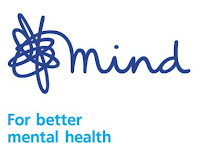 |
| Sums health anxiety up better than me... |
However, the big difference between me and Gus is the use of medication. Gus seemed to be heavily reliant on meds (this sounds like I think he was addicted - this is not the case, but I figured I should point this out as we have to be careful when talking about medication!), which I haven't been. True, I have been on beta blockers up to 50mg, and I still am on 12.5mg, but bar cold hands and feet they do not have any significant, tangible side effects, unlike the meds Gus refers to.
At 5:48 ish, Gus talks about the Seroxat medication, a type of SSRI. I had vaguely heard the name of the medication but the term SSRI I had never come across before (the presenter goes on to explain at 5:52 what SSRI stands for). At 6:02, Gus starts talking about the side-effects of the meds, which frankly frightened the living daylights out of me. It takes away your emotions? 6:56, insomnia is also a side-effect apparently. In my opinion, this is scary, scary stuff and is almost like, in terms of the depth of impact, as severe as some illegal drugs (so I've heard)... but for 6 consecutive months?!
I actually feel anxious just listening to this section of the podcast, and I'm actually quite concerned that Mind haven't elaborated on this without any additional guidance on medication linked directly from this webpage (that I can see). I'm glad the severity of the side-effects have been mentioned, but the fact that the conclusion of taking the meds appears to be a successful one in terms of panic alleviation is quite worrying. Perhaps this is not the reaction from a fellow sufferer that Mind would have wanted?
Now, I am going to assume that Gus doesn't suffer from health anxiety. As I've mentioned in numerous previous blogs, my health anxiety can basically be described thus:
I get a slight pain or something in my body seems different >> I catastrophise what this means (i.e it could be cancer/heart attack etc) >> Feelings intensifies as anxiety intensifies >> I become more sensitive to future pains and changes >> and so it starts again...
To emphasise, I am over-sensitive to any changes in my body. I notice more than the average person would, and not only that, but I automatically associate it with the worst possible outcome, even if it's based on no rational research whatsoever. The amount of panic attacks this has caused in the past is, well, lots. I have been utterly convinced that I am on death's door on numerous occasions in the past. It could be that health anxiety is at the hub of all my mental health problems, as it is closely, if not directly, linked to the panic disorder and OCD I have also experienced.
Being a bit twisted for a minute, it would be fascinating to see what reaction an SSRI would have on someone like me, with health anxiety. As I said, I notice any slight changes in my body, any pains and even my mood. I then ask 'why,' which always leads me to the incorrect conclusion. So surely, if, as Gus says, an SSRI changes your emotions so much, it would do nothing but increase my anxiety as it would lead me to ask questions such as 'what the -f- is going on?' I'm also very pedantic over the amount of sleep I get, and sleep is very important when it comes to assisting with anxiety, from what I gather. Surely these two consequences of the drug outweigh the positives?? Surely someone with health anxiety, highly sensitive to any bodily changes, would spiral into a world of hell if you started taking a medicine that totally changed YOU - as a person?
Or are these drugs so powerful that you genuinely wouldn't give a rats about anything?
Either way, the fact that these meds can seemingly change the way you act and mess with your mechanics so much scares me. It's the same with (il)legal highs; I've read about what these drugs can do to you, and how many people are so blase about the side-effects. But then, they don't have health anxiety?
Maybe this is a different strand of anxiety - it's not conventional health anxiety perhaps; it's more 'sensitive to changes in natural human processes' anxiety.
Bar the beta blockers, I am grateful never to have taken any medication that is designed to mess around with your head. I'm not disputing the success of anti-depressants or equivalent - I've never been on them so how can I? - but in my mind surely CBT or equivalent should at least be the first port of call? Gus (at 5:20) says that he wished he'd done this first, even with the belated success of the medication.
I'm sure meds are right for some people, but surely not for everyone?
Perhaps the whole of this subject is just one that is beyond my understanding or belief. Maybe it's just the health anxiety. Either way, I can't see how something that messes around with you so much can be a good thing in allowing the real YOU to tackle anxiety.
Best wishes
Al

